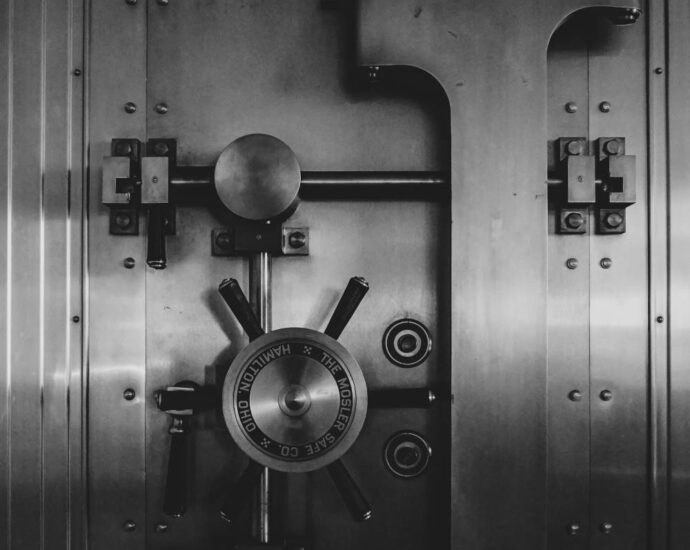Over the last year, I’ve maintained a larger cash balance in my brokerage account. Even though I don’t expect to make a lot from that money, my recent statement showed I was earning only 0.45% when my online savings account was earning 4.50%. That disparity prodded me to look at alternatives.
Before you start moving money
Make sure you understand the purpose of your money before you decide to move it. For instance, I’ve kept more cash than usual because we continue to investigate a home purchase. With the market picking up due to recent lower interest rates, I wanted to make sure we had enough for a down payment on a new home in case we had to buy before we sold. Therefore, I need the money where I can access it immediately if we find a house.
Usually if you have funds in the brokerage account, you’ve put them there to invest or you have earned dividends from your stocks and have simply let it pile up. Either way, chances are you want the money to be readily available. Knowing your timelines and goals for the money can help you determine the best option.
Do nothing
The easiest thing is to do nothing. My account is paying paltry interest, but you may have a brokerage that automatically deposits your excess cash into a money market fund earning competitive rates.
And honestly, if you know you’re going to use the majority of your money in the next couple of months, it may seem more of a headache than it’s worth to figure out how to earn a little more interest. Do the math though – you could earn hundreds or even thousands of dollars more if you invest it.
Money market fund
If your money isn’t already rolled into a money market fund, you can invest a portion or all of your money into one at most brokerages. My brokerage provides several, all earning within half a percent of my online savings rate. There are three things to know with money market funds:
These are investments. Your money isn’t guaranteed like a savings account in an insured bank. A money market fund is a fund that invests in short-term debt. Its price is pegged to $1, meaning that your return comes from yields earned on those short-term debt investments. However, there have been instances where the fund “broke the buck” such as Lehman Brothers did in 2008. Chances of that being repeated are low, but low isn’t zero which is what you’d receive in an insured savings account.
As an investment, you will pay fees and taxes. From the quick research I did, fees range from around 0.10% to almost 0.50% for money market funds. Additionally, you will be taxed on the earnings as income in the year in which you receive them.
You’re investing in a mutual fund (normally). Most money market funds are mutual funds. That means they settle after market close. In plain English, you can’t buy or sell these throughout the day, so if you see a stock that you absolutely must buy at that minute, you won’t be able to access your cash in the money market fund until the following day.
Online savings account
When I did my research, the yield for money market funds was just below the interest rate I was earning in my online savings account. And honestly, there are accounts out there where I could probably earn a quarter of a percent more. I’ve mentioned the insurance benefit to a savings account. Another is the instant access to your money. The one drawback here is that you now have moved your brokerage money in a separate account. To overcome this, you can link your accounts (savings and brokerage) to provide for faster access.
CDs
With the increase in rates, CDs have become more attractive to savers. A CD is basically a long-term savings product, different from online savings since you cannot access your money in a CD without penalty for a set period of time. Rates for CDs are about half a percent higher than what I found for money market funds. This really gets at what you need the money for. If you don’t need the money for months or even a year or more, a CD may be a viable option. However, if you need ready access to your cash, you may be forced to pay a penalty for early withdrawal if you purchase a CD.
Invest more
If you won’t need the money for years, you could consider investing it. The market gyrations have made many people doubt their decisions around investing. It’s difficult to keep putting money in the market when your best researched idea drops 5% or more overnight. However, this may be a time when dollar-cost averaging could prove beneficial. You may purchase more shares when the markets are down and less when the markets are up. In a variable market you may end up with more shares with a lower average cost of purchase.
My choice
Even though I have an online savings account, I chose to purchase a money market fund at the brokerage. I admit I’m giving up a little on interest. But I really don’t like the idea of having my savings account linked to my brokerage account. Plus, I don’t purchase stocks or funds on a sudden whim; I can easily wait a day for the fund to settle and then invest my money.
One key though is to watch the fees. Right now, most money market funds that I reviewed report a 7-day yield of between 4.20% and 5.00%. So, a fee of half a percent may not seem that much. Still, compare your brokerage to others to make sure they are competitive on fees as well as yield. If the 7-day yield quickly reverses course, your fees will eat up a higher percentage of your earnings.
Photo by Jason Dent
